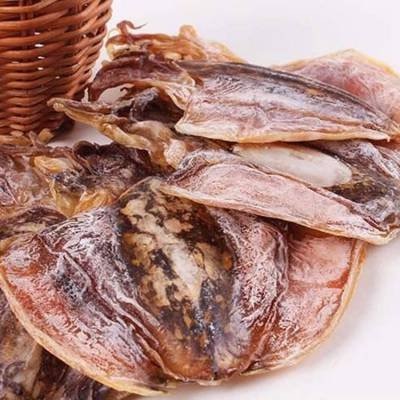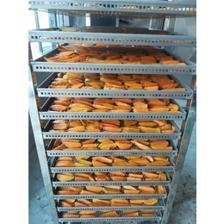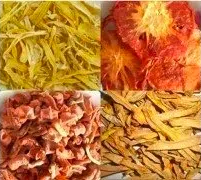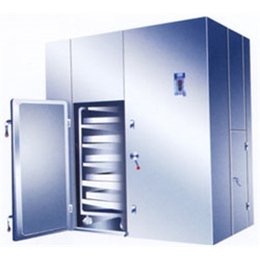
Content Menu
● Understanding Heat Pump Dryers
● Energy Efficiency
● Drying Time
● Installation Flexibility
● Environmental Impact
● Cost Considerations
● Performance Comparison
● Maintenance and Longevity
● Consumer Preferences
● Conclusion
● Frequently Asked Questions
>> 1. What is the main difference between heat pump dryers and traditional dryers?
>> 2. Are heat pump dryers worth the investment?
>> 3. How long does it take to dry clothes in a heat pump dryer?
>> 4. Can heat pump dryers be installed anywhere?
>> 5. Do heat pump dryers damage clothes?
In recent years, the appliance market has seen a significant shift towards energy-efficient technologies, particularly in the realm of clothes drying. Among these innovations, heat pump dryers have emerged as a popular alternative to traditional dryers. This article explores the differences between heat pump dryers and traditional dryers, focusing on their efficiency, cost-effectiveness, and overall performance in the USA market.

Understanding Heat Pump Dryers
Heat pump dryers operate on a different principle compared to traditional dryers. Instead of generating heat and venting it outside, heat pump dryers recycle the air within the drum. They use a heat pump system to extract moisture from clothes while maintaining a lower temperature, which is gentler on fabrics. This method not only conserves energy but also reduces wear and tear on clothing.
Energy Efficiency
One of the most significant advantages of heat pump dryers is their energy efficiency. They can consume up to 50% less energy than traditional electric dryers. This efficiency translates into lower utility bills over time, making heat pump dryers a cost-effective choice for many households. Although the initial purchase price of a heat pump dryer may be higher, the long-term savings on energy costs can offset this difference within a few years.
Drying Time
While heat pump dryers are more energy-efficient, they typically have longer drying cycles compared to traditional dryers. A standard load may take anywhere from 1 hour 20 minutes to 1 hour 40 minutes to dry. This extended drying time is due to the lower temperatures used in the drying process, which, while gentler on fabrics, can be a drawback for those needing quick turnaround times.
Installation Flexibility
Another advantage of heat pump dryers is their installation flexibility. Unlike traditional dryers that require venting to the outside, heat pump dryers can be installed in various locations within the home, including small spaces and apartments. This versatility makes them an attractive option for urban dwellers or those with limited laundry room space.

Environmental Impact
Heat pump dryers are also more environmentally friendly. By using less energy, they contribute to lower greenhouse gas emissions. As consumers become more environmentally conscious, the demand for energy-efficient appliances like heat pump dryers is likely to increase. This shift not only benefits individual households but also contributes to broader efforts to combat climate change.
Cost Considerations
When considering a heat pump dryer, it's essential to weigh the initial investment against potential savings. Traditional dryers typically range from $800 to $1,200, while heat pump dryers can cost between $900 and $1,850. The higher upfront cost of heat pump dryers is often justified by their energy savings and lower operating costs over time. Additionally, many states offer rebates or incentives for purchasing energy-efficient appliances, which can further reduce the overall cost.
Performance Comparison
When comparing the performance of heat pump dryers to traditional dryers, several factors come into play. Heat pump dryers tend to be quieter during operation, which can be a significant advantage for households where noise is a concern. Furthermore, the gentler drying process helps preserve the quality of fabrics, reducing the risk of shrinkage and fading.
On the other hand, traditional dryers often have faster drying times, which can be a crucial factor for busy households. For those who prioritize speed over energy efficiency, traditional dryers may still be the preferred choice. However, as technology advances, newer models of heat pump dryers are being developed to improve drying times without sacrificing energy efficiency.
Maintenance and Longevity
Heat pump dryers generally require less maintenance than traditional dryers. Since they do not vent hot air outside, there is no need to worry about lint buildup in external vents, which can be a fire hazard. However, it is essential to clean the heat exchanger and filter regularly to maintain optimal performance. This maintenance is relatively straightforward and can be done by the user.
In terms of longevity, heat pump dryers often have a longer lifespan than traditional dryers. The lower operating temperatures reduce wear and tear on components, leading to fewer repairs and a longer overall lifespan. This durability can make heat pump dryers a more economical choice in the long run.
Consumer Preferences
As consumers become more aware of the environmental impact of their choices, many are leaning towards energy-efficient appliances. Heat pump dryers are gaining popularity not only for their efficiency but also for their ability to handle a variety of fabrics delicately. This feature appeals to consumers who want to protect their clothing investments while also reducing their carbon footprint.
Conclusion
In summary, heat pump dryers offer several advantages over traditional dryers, including energy efficiency, gentler drying processes, and installation flexibility. While they may have longer drying times and a higher initial cost, the long-term savings and environmental benefits make them a compelling choice for many consumers in the USA market. As technology continues to evolve, heat pump dryers are likely to become even more efficient and user-friendly, further solidifying their place in modern households.

Frequently Asked Questions
1. What is the main difference between heat pump dryers and traditional dryers?
Heat pump dryers recycle air and use lower temperatures, making them more energy-efficient, while traditional dryers vent hot air outside.
2. Are heat pump dryers worth the investment?
Yes, despite a higher initial cost, heat pump dryers can save money on energy bills over time.
3. How long does it take to dry clothes in a heat pump dryer?
Drying times can range from 1 hour 20 minutes to 1 hour 40 minutes for a standard load.
4. Can heat pump dryers be installed anywhere?
Yes, they do not require external venting, allowing for flexible installation options.
5. Do heat pump dryers damage clothes?
No, they operate at lower temperatures, which is gentler on fabrics compared to traditional dryers.












